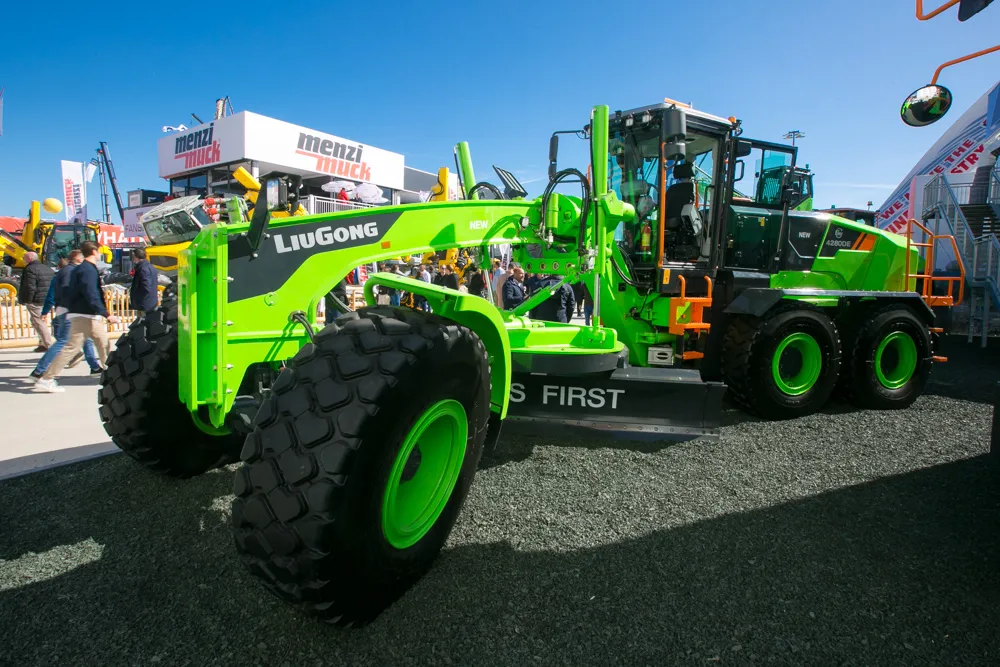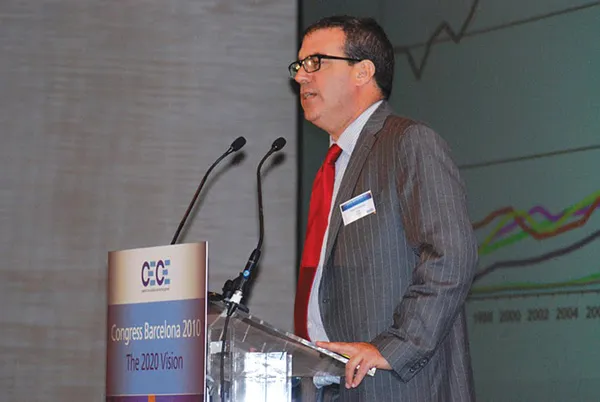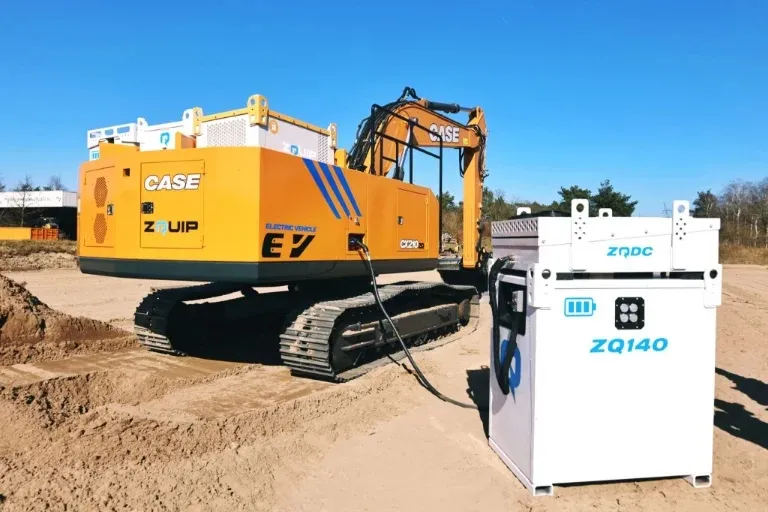
LiuGong’s commitment towards the future of battery-electric vehicles in the construction sector is exemplified by its expanded portfolio, including the new 4280DE motor grader.
The battery-electric grader’s battery pack provides fast charging within 1.6 hours and allows normal working conditions between six to 10 hours.
Meanwhile, the large capacity lithium-iron phosphate battery is safe and durable. Its development also demonstrates how new technologies and imagination go hand in hand in today’s R&D, as explained by the company’s chairman, Zeng Guang’an.
Zeng joined LiuGong when he was a 20-year-old university graduate and now has 40 years with the company. During an interview with Global Highways, he noted that innovation requires a great deal of imagination when it comes to technical development because of the incredible tools that are now available, including artificial intelligence.
For example, when the Chinese government took concrete steps to support electric-vehicle development back in 2014, he understood that this could also be done for LiuGong’s machinery.
“You need imagination, dedication but also you need to invest in your ideas. This is most important for the long-term success of new technologies,” he said.
Unlike 20 years ago, digitalisation is increasingly part of the solution for maintaining good dealership relations that includes fast product and service delivery for the end user of LiuGong’s equipment.
“It is easier now to get information from customers thanks to sensors on a machine that tell of its performance in real time,” said Zeng. “We can respond quickly and pinpoint problems for the end user. This speeds up servicing for machines and can improve delivery of parts, too.”
The end user and dealers are always in the forefront of the minds of employees in LiuGong’s global regional hubs. In today’s business environment, increased speed of servicing and parts delivery are part of the many challenges for Liugong’s global dealership network.
“For example, in Europe there are the European Union regulations governing BEVs [battery-electric vehicles] and we have to train our dealers, service dealers and customers to be up to date with the regulations,” he said. “We must invest in this.”
Today’s business environment also now includes the recent global tariff hikes and concerns by almost all sectors of the impact this will have on international supply chains. Nonetheless, Zeng is optimistic about the future of global trade. He is also adamant that LiuGong, which has had customers in the US for more than 50 years, will stay in the US to support them, no matter what.
“Every four years they have a new president. You may lose some revenue in the short term but you have to stay there to support your customers in order for everyone to succeed in the long term.”








